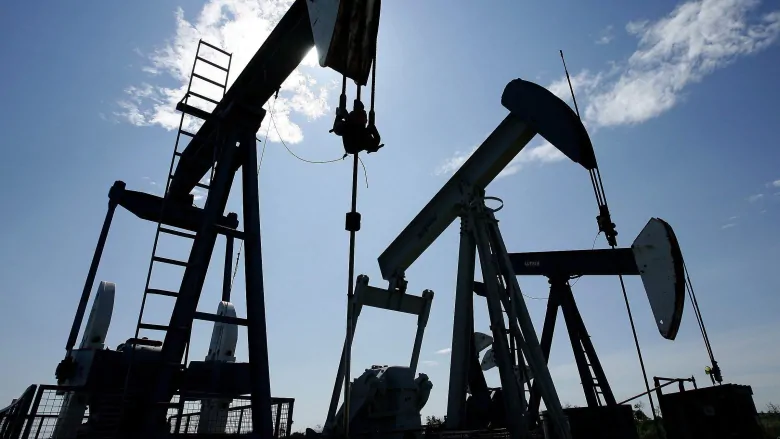The impact of plunging oil prices landed with a thud in Canada on Monday, sending tremors across the oilpatch and again raising the spectre of spending cuts, production cuts and job cuts.

Plunging oil prices landed with a giant thud in Canada on Monday, sending tremors across the oilpatch and raising the spectre of spending cuts, production cuts and job cuts.
The collapse was triggered by a severe double whammy — fears the spread of COVID-19 could trigger a global recession and an oil price war between Saudi Arabia and Russia.
The immediate consequences were grim.
The benchmark price for North American oil, West Texas Intermediate, initially fell by the most in one day since the 1991 Gulf War, before eventually settling at $31.13 US per barrel, down $10.15 US, on Monday.
“This is one of the biggest shocks that we’ve seen in the last 40 years,” Jeremy McCrea, an analyst with Raymond James, said early Monday.
The global benchmark, Brent crude, closed down 24 per cent at $34.36 US a barrel.
Canadian energy stocks were also hammered, with the S&P/TSX capped energy index down more than 27 per cent.
Now, the country’s oil and gas sector — like others worldwide — is weighing the fallout and trying to assess the potential repercussions if prices stay this low for months to come.
The energy sector accounts for more than 11 per cent of Canada’s gross domestic product.
WATCH: Drop in oil prices another blow for Alberta :
Alberta’s struggling economy was dealt a devastating blow with a major drop in oil prices on Monday. 1:48
Market watchers have already warned that the most vulnerable companies will be those carrying too much debt, have high operating costs and limited access to funding.
McCrea said the situation will be a test of companies’ financial health.
“The question is who has … the staying power and the balance sheets to make it through this disagreement that those countries have,” McCrea said.
In the near term, he expects companies could reduce their capital spending plans by 30 to 40 per cent. Oil production could also come down very quickly.

